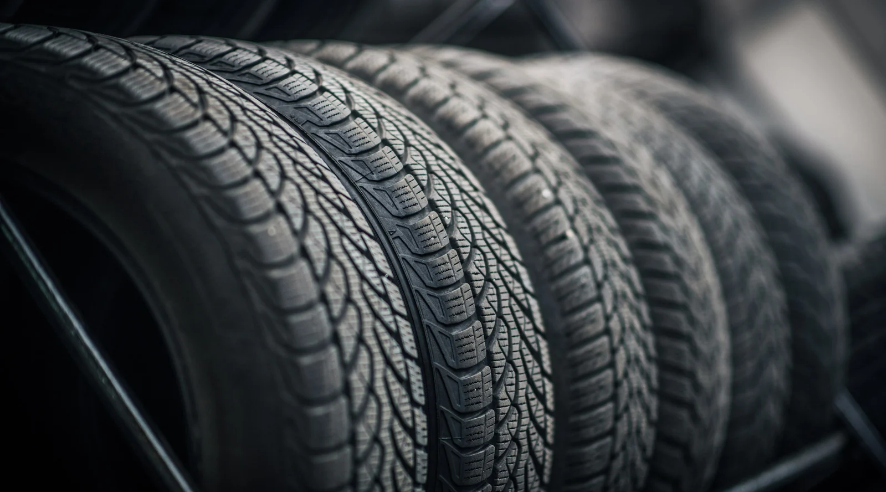Maximizing Car Tire Life and Safety: A Comprehensive Guide
- 24 August 2022

As a car owner, one of the most critical components you need to keep in good condition is your tires. Tires play a crucial role in ensuring a smooth, safe, and comfortable ride. Yet, many car owners often neglect their tires and are unaware of the steps they can take to extend their lifespan and improve performance.
In this article, we will delve into the world of car tires and provide a comprehensive guide on how to maximize their life and safety. We'll explore the various types of tires, their composition, the factors that affect their lifespan, and the signs that indicate it's time to replace them. Additionally, we'll provide tips on how to maintain your tires, including proper inflation, balancing, and alignment, and explain why these are critical for prolonging their lifespan.
Material
First, let's start with the basics. Tires are made up of rubber, steel, and fabric. The rubber provides the grip and traction, while the steel gives the tire its strength. The fabric, known as the tire's casing, helps to hold the tire's shape. These components are molded together to form a tire, which can then be mounted on a car's rim.
Type of Tire
When it comes to the lifespan of your tires, several factors come into play. These include the type of tire, the car's weight, road conditions, driving habits, and tire maintenance. For instance, a car that's frequently driven on rough or uneven roads will experience more wear and tear than one that's driven mostly on smooth highways. Similarly, tires that are underinflated or unbalanced will wear faster than those that are properly inflated and balanced.
Air Pressure
To ensure that your tires last as long as possible, it's crucial to take good care of them. This means monitoring their air pressure and checking it regularly to make sure it's at the recommended level. It also means having your tires balanced and aligned regularly, which will prevent uneven wear and improve handling. Additionally, rotating your tires periodically will help distribute the wear evenly and prolong their lifespan.
Aware of the Signs
Another important aspect of tire maintenance is to be aware of the signs that indicate it's time to replace your tires. These include cracks, bulges, and cuts in the tire's sidewalls, as well as tread wear indicators, which are small bars that become visible as the tire wears down. If you notice any of these signs, it's time to replace your tires.
Key Points
One of the key points we emphasized in the article is the importance of proper tire inflation. Tires that are underinflated can cause excessive heat buildup, which can lead to decreased tire life and a reduction in fuel efficiency. In contrast, tires that are overinflated can result in a harsh ride and can make the car more prone to hydroplaning in wet conditions. Therefore, it's crucial to monitor tire pressure regularly and keep it at the recommended level specified by the manufacturer.
Balancing and alignment are also critical components of tire maintenance. A tire that is out of balance will cause uneven wear and can cause the car to vibrate, which can lead to discomfort and decreased handling. Aligning your tires will help ensure that they are running straight and true, which can improve handling and increase tire life. By having your tires balanced and aligned regularly, you can avoid these problems and keep your tires in good condition.
Another key point we discussed is the impact of driving habits and road conditions on tire life. Driving aggressively, such as accelerating and braking hard, can put additional stress on your tires and reduce their lifespan. Additionally, driving on rough or uneven roads can cause excessive wear and tear, so it's important to take extra care when driving on these types of roads.
Finally, we highlighted the importance of being aware of the signs that indicate it's time to replace your tires. By paying attention to the tread wear indicators and checking for cracks, bulges, or cuts in the sidewalls, you can ensure that your tires are in good condition and ready to provide safe and reliable performance.
In conclusion, maintaining your car tires is critical for ensuring a safe and comfortable ride. By monitoring tire pressure, rotating your tires, and having them balanced and aligned regularly, you can extend their lifespan and avoid costly replacements. Additionally, by being aware of the signs that indicate it's time to replace your tires, you can ensure that you're driving on safe and reliable tires. So, make tire maintenance a priority in your car care routine, and enjoy the peace of mind that comes with having safe and reliable tires.




